
Eminent Panel of Patrons
Late Dr. Narayan Vaman Divan (SARASWATI MUSIC SCHOOL)

Please accept our deepest condolence in the loss of our Patron Dr. Narayan Vaman Divan. May his soul rest in Peace.
689/4 Aundumber, Padam society, Bibewadi road, Pune 37
Contact number - 24211955
Date of birth - 13 dec'27
Place of birth - Kolhapur
Date of Demise- 31st Oct 2012
From 1940 to 1950 received musical training at Gurukul from Pandit Keshav Buva Ingle.
From 1951 shifted to Pune and started career as musical teacher in Madhav Music Academy and same time achieved Sangeet Alankar degree in first class grade.
Establishment of Saraswati music academy at Narayan peth (Pune) in 1952-53.the same is in operation as of today.
In 1957 joined Akhil Bharatiya Gandharv Mandal and working till date as a patron member.
In 1965 achieved recognition for music examination center. The same is recognized as India's largest music academy where 2000 student are present for examination.
Till date 1000 student have a degree known as Sangeet Visharad, 800 students have a degree for Sangeet Alankar and 3 of them have achieved the position of Sangeet Acharya.
From 1957 to 1975 worked as a music teacher in S.N.D.T girl's high school.
Am currently a committee member of Arya Sangeet Prasarak Mandal.
Have good relations with Gandharv music institute and Bharat Gayan Samaj.
Received the honor of Sangeet Acharya in 1969.

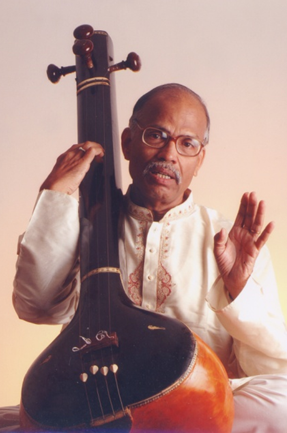
Pandit Vijay Bakshi
Achievements1st Rank- Diploma in Music
2nd Rank-Akhil Bharatiya Akashivani
Yuva kalakar music competition ( All India AIR Young Artist music Competition)
Felicitated with "Soormani" by sur singar Sansad, Mumbai
'Best Teacher' Award conferred by Pune Cantonment Board
'Best Teacher' Award conferred by Pune Municipal Corporation
Performances
1. Tansen Samaroh, Gwalior
2. Aundh Sangeet Samaroh
3. Sawai gandharva Mahotsav Kundgoi
4. Ramakrishnabua Vaze Sangeet Sammelan, Goa
5. Magubai Kurdikar Sangeet Sammelan, Goa
6. MCPA, Mumbai

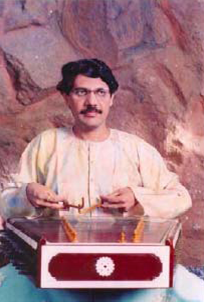
Mr. Dhananjay Daithankar
Dhananjay-ji began his music/rhythm education for 10 years under the able guidance of late Pt. G. L. Samant. Later during his college days, fascinated by Santoor (Shatatantri Veena) he manufactured one all by himself. Seeing his fascination, Pt. Shivkumar Sharma encouraged him to take Santoor lessons with Pt. Ratanlal Tikko for 4 years. Later Pt. Shivkumar Sharma decided to take Dhananjay-ji as his own disciple and began his rigorous training. Since then Santoor has become Dhananjay-ji's highest goal in life. Since then, he received numerous awards and performed at many prestigious festivals in India and abroad.

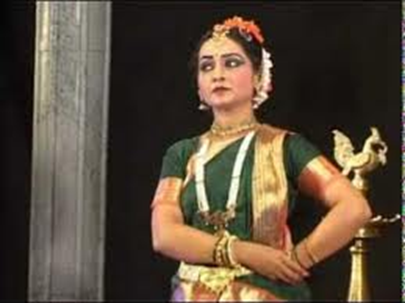
Mrs Swati Daithankar
Awards won so far* National Scholarship (1989-91)
* Sir Nageshwar Rao Award (1989)
* Yuva Bharati Award (1998)* Sangeetonmesh (2000)
* Nritya Alankar(2000) with first class from Akhil Bharatiya Gandharva Mahavidyalaya Mandal
* National Fellowship (2000-2002) form Govt. of India for the research in the subject "The parallel aspects of Yoga & aesthetics of Bharat Natyam"
* Graded Television Dancer
Choreographies : Dance Ballets :
* Krishna Leela Natakam (1997)* Srujan (1998)
* Yugantara (1998)* Panchatanmatra (1999)
* Radha (2000) * Shiva-Shakti (2001)
Honours :
* Swati is attached as a dance faculty at Pune University & Akhil Bharatiya Gandharva Mahavidyalaya.
* HMV has released her VCD "Rajas Sukumar" based on Marathi Saints literature which is the first VCD of its kind, released in international market.
* Choreographed for Lata Mangeshkar's VCD "Ashtavinayak Geete".
* DVD "Margam" released by Neelam Audio Video, U.S.A.

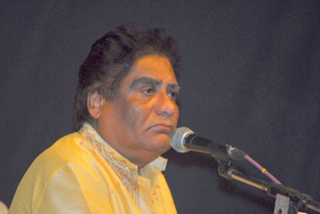
Mr. Anwar Qureshi
He was born on September 5, 1950. He is blessed to have born in an illustrious family of musicians where music is worship. Music runs in the genes of this genius from 'Jhajjar Khandaan'.
He learnt classical vocal from his father and violin and ghazal from his brother Ustad Fayyaz Husain Khan.
Inspired by Mehdi Hasan and Gulam Ali; he started presenting ghazals in 1981. He strongly believes in singing ghazals with meaningful shayari, pristine Urdu verses and emotional appeal. He has developed a unique style of singing which is a mix between Gwalior and Bhendi bazar gharana.
Ustad Anwar Qureshi made his mark as a Ghazal singer and has given more than 3000 shows. He has also composed music for many ghazals written by great Urdu shayars like Mirza Ghalib, Faiz Ahmad Faiz, Daag Dahelvi, Shakil Badayuni etc. These compositions are based on ragas like Kirwani, Bhairavi, Bhinnashadja, Darbari, Marwa, Chandranandan, Janasammohini, Bageshri, Rageshri etc. These ghazals stand apart from the commercial filmy ghazals. His efforts are to maintain a distinctive style of traditional Ghazal singing.
The Guru
Guruji has trained hundreds of students in Hindustani classical vocal as well as Ghazal. Many of his students perform on stage; many have qualified auditions on All India Radio. He is very particular about the way his students present their art. He makes sure that the pronunciation of Urdu words is right. He makes them rehearse till the presentation is perfect in terms of authenticity of musical notes and that the meaning of the Ghazal is conveyed to the audience.

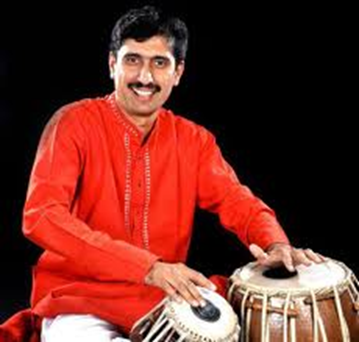
Mr Sanjay Karndikar
Disciple of Late Pt. Madhav Karandikar ,Pt. Shashikant Bellare, Pt. Vikas Datar and Pt. Ramdas Palsule.
Ranked 2nd in All India Ranking for Sangeet Alankar (Tabla)Akhil Bhartiya Gandharva Mahavidyalaya Mandal in 2003.
Exponent of Indian Percussion Instruments-Tabla & Dholki.Founder & Director, Swar-Taal Sadhana, School of Music, Estb.1993 Renowned teacher of Tabla and Dholki - has over 1000 past and present students from India and abroad.
Accredited artist for All India Radio and Television. Selected by Indian Council for Cultural Relations, for deputation has published books and audio-visual aids on Tabla & Dholki which are extensively used by students. Acclaimed accompanist of Tabla & Dholki and has performed with renowned artists, to name a few Indian Classical Smt. Alka Marulkar, Smt. Manjiri Alegaonkar, Shri Shaunak Abhisheki, Shri Anand Bhate, Shri Vijay Koparkar, Smt. Jaymala & Kirti ShiledarLight Music Pt. Yashwant Deo, Shri Shrirang Umrani Folk Music Shri CharudattaAphale (Kirtan), Late Shahir Kisanrao Hinge (Povada),Smt. Sulochana Chavan (Lavani)Has also performed for music tracks of Regional Films, Documentaries and Television serials.Participated in series "NaadYatra" as Content Expert and Performer - show casing the intricacies of different percussion instruments. The series was produced by EMRC, University of Pune and telecast on DOORDARSHAN.
Accompanied Shri. Anand Bhate (Disciple of Bharat Ratna Pt. Bhimsen Joshi) in his Vocal programmes during USA tour . Also conducted Tabla Workshops in various cities across U.S.A stage performances includes Solo performances &"Taalvadya Kacheri".

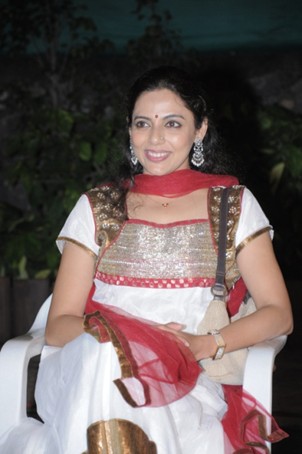
Sharvari Jamenis
Sharvari is a name that reflects great promise. She began receiving training in Kathak, at Nrityabharti Kathak Academy in Pune , in 1984. She has been under special tutelage of Guru Pandita Rohini Bhate, an acclaimed dancer & guru of international repute.
Achievements
1. Diploma in Kathak From Nrityabharati2. 1st in Master Degree in Kathak- Pune University 1995-1996
3. Received 'Sringar Mani' title by Sur Sringar Sansad
4. Recognized as talented actor in the world of Marathi Cinema.




